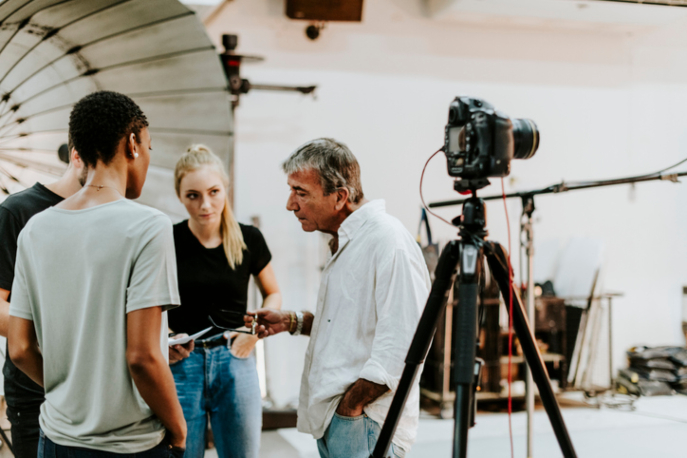Over the last five or so years, we’ve seen a reckoning in Hollywood and many workplaces rife with stories of sexual misconduct, discrimination and toxic environments.
However, as institutions such as the Academy of Motion Picture Arts and Sciences and certain studios push for systemic change, we’ve also seen individual public figures push for a higher standard that will help increase access and reduce the likelihood of unsafe workplaces. In this blog, we highlight people who are living examples of how we can all be part of the solution to prevent and address sexual harassment, misconduct and abuse in Hollywood and beyond.
–Gretchen Carlson, former anchor for Fox News who filed a lawsuit against then Fox News chairman and CEO Roger Ailes for sexual harassment. Her coming forward inspired dozens of other women to step forward to accuse Ailes of harassment and she founded non-profit Lift Our Voices to eradicate clauses in workplace contracts that silence survivors of harassment, assault and all other forms of discrimination. LOV aims to transform the American workplace, creating a safe, inclusive and diverse environment for all workers. Carlson noted during an NSAC workshop that she had worked across the aisle to get H.R.4445 – Ending Forced Arbitration of Sexual Assault and Sexual Harassment Act of 2021 – to the finish line and signed into law.
–Ryan Coogler, known for his blockbusters Creed and Black Panther recently discussed on Marvel Studios Assembled: The Making of BLACK PANTHER: WAKANDA FOREVER how important it is that he intentionally surrounds himself with women leaders throughout the production of his projects. When he was tapped for the first Black Panther film, he brought on women he trusted even though neither of them had ever worked on a big-budget film. “I have no doubt that Ryan had to go to bat for me with Marvel,” cinematographer Rachel Morrison told the Los Angeles Times. Coogler continues to be a vocal advocate for broad diversity in front of and behind the camera in Hollywood.
–Ava Duvernay began knocking down doors with her historic wins when she began filmmaking in her late thirties. In 2012, she became the first Black woman nominated for an Academy Award for Best Documentary Feature at Sundance. For her hit OWN Network show, Queen Sugar, Duvernay only used women directors for the show’s seven-year run; the vast majority of whom were first-time episodic directors. Despite facing pushback from some members of the Directors Guild of America (DGA), she persisted.
–America Ferrara, known for her roles in television shows Superstore and Ugly Betty, partnered with her husband, Ryan Piers Williams and actor Wilmer Valderrama to found Harness following the 2016 presidential election. Harness centers voices, stories and experiences of underrepresented communities in popular culture. The organization has worked to advance racial justice, gender justice and civic justice by centering the priorities and needs of those most impacted by injustice. The organization has since inspired other celebrities to get engaged in advocacy efforts
–Beyonce Knowles is set to tour this year and most of her cities are completely sold out. But before she even made the announcement, there were articles about her “#MeToo Checks” on future collaborators. The background checks are less about looking for guilty verdicts than they are about checking twice for credible stories of misconduct. While the notoriously tight-lipped megastar is unlikely to ever confirm or deny the process, the possibility is an important example to set for the industry—that people cannot get away with abusing power. Following the reports of Beyonce’s #MeToo checks, we learned Janet Jackson was reportedly doing something similar for her forthcoming tour.
–Reese Witherspoon has pushed for systemic change to close the gender gap in the entertainment industry with her company, Hello Sunshine, which provides content for women, features strong female characters, is written and produced by women, and includes an all-women C-suite and a staff that’s almost entirely female. Following CNBC and LinkedIn’s survey on women in entertainment that found reports of sexual misconduct in the workplace have raised awareness of gender discrimination and the differences in how women and men are paid, the company partnered with a number of production companies focused on pushing forward female narratives.
These are just six examples, but similarly incredible stories can be found throughout the entertainment industry. As systems at large continue to improve over time, people can make a difference in their studios or on their sets immediately.
RALIANCE is a trusted adviser for organizations committed to building cultures that are safe, equitable, and respectful. RALIANCE offers unparalleled expertise in serving survivors of sexual harassment, misconduct, and abuse which drives our mission to help organizations across sectors create inclusive environments for all. For more information, please visit www.RALIANCE.org.

